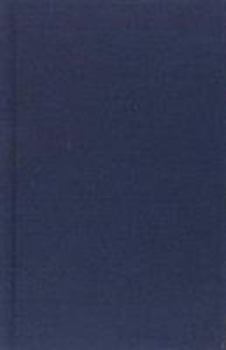The Self-Begetting Novel
Select Format
Select Condition 
Book Overview
No Synopsis Available.
Format:Hardcover
Language:English
ISBN:0231047827
ISBN13:9780231047821
Release Date:October 1980
Publisher:Columbia University Press
Length:161 Pages
Weight:0.75 lbs.
Dimensions:0.6" x 5.5" x 8.5"
Age Range:22 years and up
Grade Range:Postsecondary and higher
Customer Reviews
1 rating
The First Study of Modernist Autogeny in Fiction
Published by Thriftbooks.com User , 17 years ago
"Sunflowers, those vulgar monstrosities beloved by village trainmasters and parrots." So quips monsieur Croche, the critical alter ego nom de plume of Claude Debussy. The Self-Begetting Novel also finds a tie among humankind and the parrot: "Authors and parrots all have parents, though books are seldom dedicated to them." (This book's dedication reads "To Mother": we can infer the author refutes any personal connection to parrots or these ungrateful writers.) This relatively short work, 142 pages, consists of seven chapter studies on modern fiction, focusing on a major work of each of several authors, mostly French, who increasing weight down their plots in what I read as an overly self-aware consciousness, and what Kellman much better terms Reflexive Fictionizing. Save for Sarte's Nausee, most of the works discussed tended not surprisingly to be extremely forbidding to average readers in search of more traditional plot. The novelists in the Self-Begetting novel operate under a self-imposed and continuosly expanding maze of looking glass reflections - most of these works were written during the early Golden age of Jung and Otto Rank. Like Marcel Duchamp's astonishing breakthrough painting, "Nude Descending a Staircase" (A work contemporaneous (1912) with the novels of Proust) each novel seems to take it's own authorial voice apart - visualize an infinite series of blond Rita Hayworths concatenating across the silver screen. The final result might be described as almost Buddhist-like in philosophy; containing the seeds of personal growth of both the destructive and the creative. For these authors the novel in its established form has dissolved. Instead of strict authorial separation, Proust and his literary brethren increasingly assert the impossibilty of writing without recognition of the actuality of what is being done. Put differently - the narrators are not only aware they are in a novel, they gradually discover they are going to have to write a novel about this awareness. Confusing, yes. But that's the modern world for you. The traditional narrative voice shifts from objective or even ironic to an acceptance of extreme self-conscious formalism. It is as if the novel has disovered its id. In an almost Faustian bargain, the novelist uses his narrative as might Houdini, cheating the pangs of mortality by trading in omniscience, the accustomed birthright of gods, and novelists who wish to be gods. Or what Fitzgerald nicely captures in Gatsby, "The truth was that Jay Gatsby of West Egg, Long Island sprang from his Platonic conception of himself." A far more described and complete fulfillment of authorial autonomy through self-making emerges in the key book for this study, Proust's massive semi-autobiographical research into passing time. Autobiography plays a large role in all these works: for Kellman readers of Proust are "voyeurs at a procreation." Proust's authorial voice becomes absorbed into his character, and eventually exi





